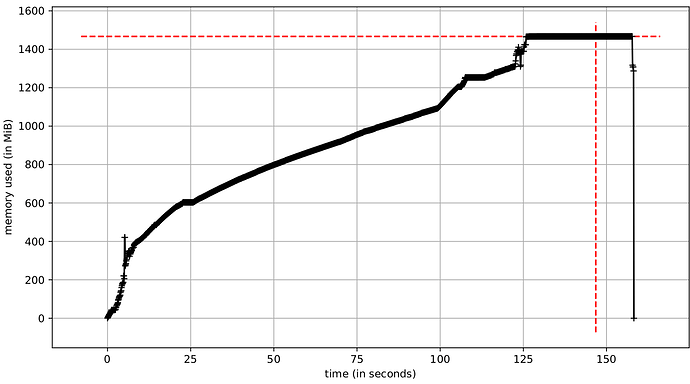Hi,
I am having again this problem:
this time in code that looks like:
import ROOT
import warnings
warnings.filterwarnings( action='ignore', category=FutureWarning, message='Instantiating a function template.*' )
#--------------------
def test(replica):
expr="v_trg_wgt_sta[{}]".format(replica)
repl=expr.replace("[", "_").replace("]", "_")
dff=df.Define(repl, expr)
d_var=dff.AsNumpy([repl])
#--------------------
df=ROOT.RDataFrame("tree", "file.root")
for i in range(0, 10):
test(i)
This problem kept my jobs getting killed for days. As you mentioned, we could do:
import ROOT
import warnings
warnings.filterwarnings( action='ignore', category=FutureWarning, message='Instantiating a function template.*' )
#--------------------
def test(replica):
expr="v_trg_wgt_sta[{}]".format(replica)
repl=expr.replace("[", "_").replace("]", "_")
d_var=df.AsNumpy([repl])
#--------------------
def define(replica):
global df
expr="v_trg_wgt_sta[{}]".format(replica)
repl=expr.replace("[", "_").replace("]", "_")
df=df.Define(repl, expr)
#--------------------
df=ROOT.RDataFrame("tree", "file.root")
for i in range(0, 600):
define(i)
for i in range(0, 10):
test(i)
So that whatever needs to be allocated by “RDataFrame::Define” gets allocated once. This seems to lower the amount of memory used to 1.5Gb.
However:
- The dataframe is needed by many functions, not just “test”. These functions might need to read a different part of the file or do different things with the data. So I would strongly prefer to have one instance of it, rather than making it multiple times.
- I need to have a booking function everytime I use RDataFrame, i.e. the second approach, which is less simple than the first one.
- Everything that gets booked occupies space throughout the process, even if it’s used once only.
- 1.5 Gb is not a small amount, for memory that we won’t get back til the end of the process. I mean, we might need several files to be processed, which might need several dataframes, that’s a lot of wasted memory.
- The garbage collector does not deallocate that memory.
My use case is pretty standard, from the scripts, I am not doing anything exotic.
Question: Is there a way to go around this or should I go back to using TFile and TTree?
The type of answer I expect is:
“You can deallocate the object with df.Free(repl) after every call.”
But I assume, we cannot do such a thing. Feel free to modify the scripts with a realistic and workable approach.
Cheers.
Please read tips for efficient and successful posting and posting code
ROOT Version: 6.20
_Platform: x86_64-centos7
_Compiler: gcc9-dbg
